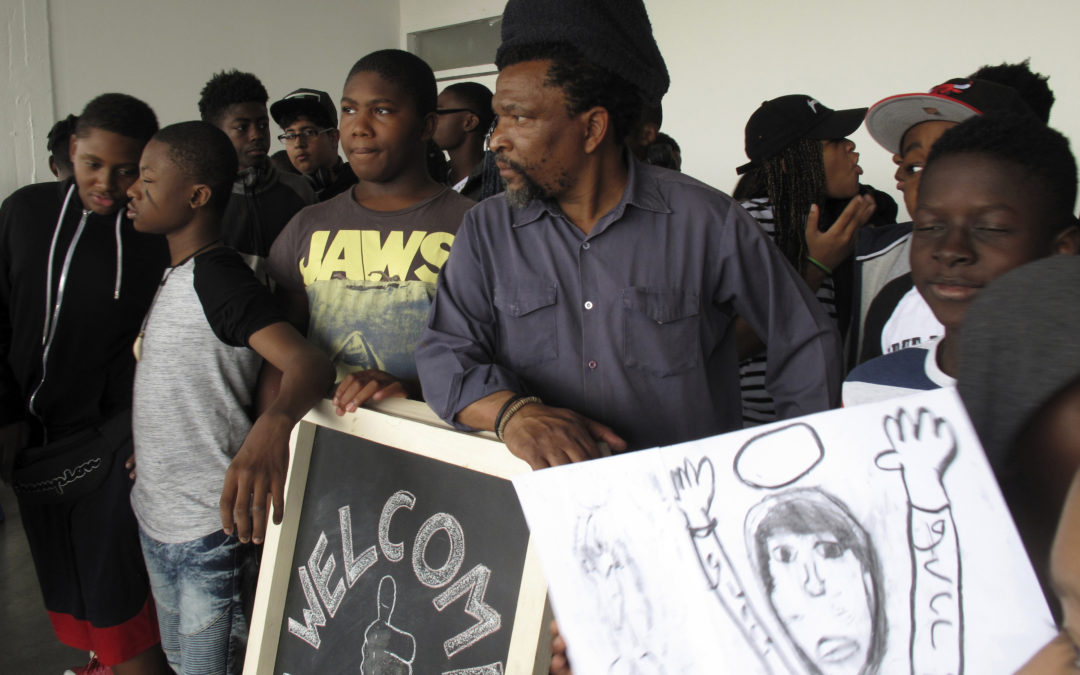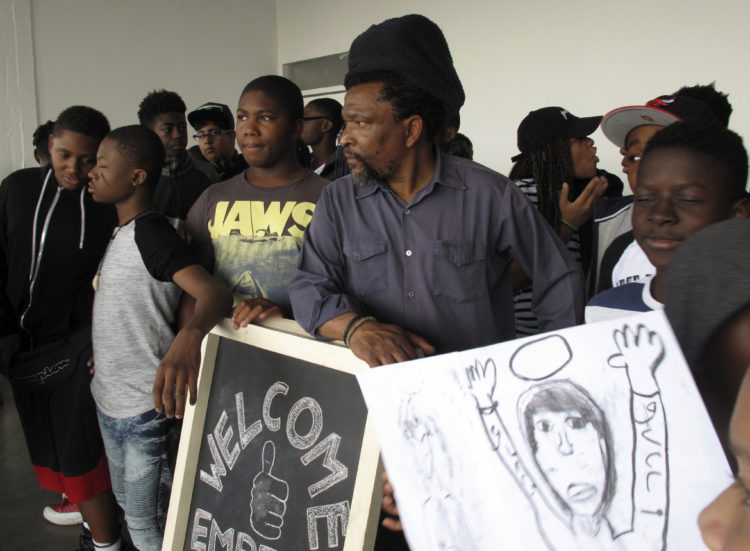
South African artist talks art, apartheid with US students

South African artist Thokozani Mthiyane, center, poses with students from the Ember Charter School in Brooklyn, N.Y. after an art workshop in Johannesburg on Sept. 29, 2018. Dozens of students from a Brooklyn charter school are visiting South Africa to explore African cultures and South Africa’s journey from racial tension to reconciliation. (AP Photo/Christopher Torchia) (AP Photo/Christopher Torchia)
South African artist Thokozani Mthiyane told dozens of children from a Brooklyn school to close their eyes and imagine “the worst scenario that you can.”
Then he told his hushed audience at a Johannesburg art gallery to “find a way out,” through imagined trees and sky, to “where we would like to be.”
That was his enigmatic answer to a question about why he is an artist, delivered during a workshop for visiting American students from low-income families at the Ember Charter School in the Bedford-Stuyvesant neighborhood. Bed-Stuy is known for its African-American heritage, and the trip is a chance to expose the children to African cultures and South Africa’s journey from racial tension to reconciliation.
The children also visited the Constitutional Court building, constructed in part from bricks that were originally part of a prison during white minority rule known as apartheid.
“We have an opportunity to explode their minds,” said school founder Rafiq Kalam Id-Din.
Mthiyane told the dozens of children, many in their early teens, about his eclectic influences — artists Mark Rothko and Jean-Michel Basquiat, poet Langston Hughes — and encouraged them to find inspiration within themselves.
“How do you feel?” he asked after a drawing exercise.
“It made me feel excited to see what the outcome would be,” one student said to applause.
A student asked: “Did you live through apartheid and if so, what was that like?”
Yes, Mthiyane replied. He said the system that ended in 1994 with all-race elections made him ask “taboo” questions about why it existed.
Apartheid, he said, was bad not just for the people it ostracized but also for “the person who’s exercising that power over you.”
Video Courtesy of Art Eye Gallery
